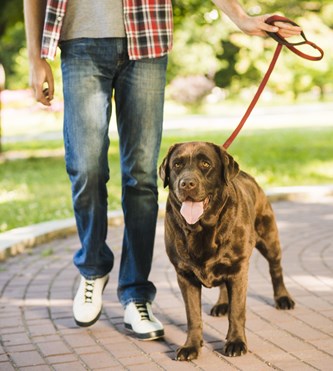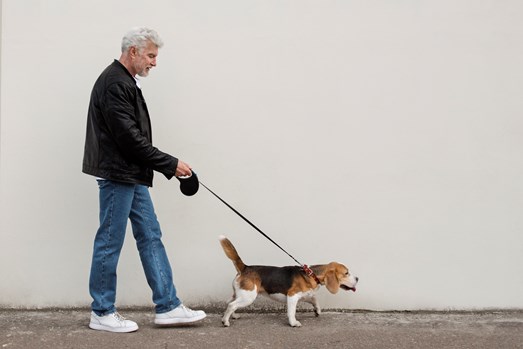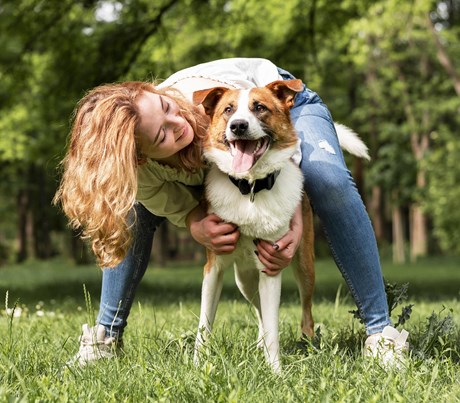
Choosing the Right Dog Walker: A Guide to Finding the Perfect Fit
Dogs are more than just pets; they are cherished members of the family. As responsible pet owners, we want the best for our furry companions, and one crucial aspect of their well-being is regular exercise. However, busy schedules and other commitments can sometimes make it challenging to provide our dogs with the daily walks they need. This is where professional dog walkers come in, offering a valuable service that ensures our dogs get the exercise, socialization, and mental stimulation they require. But how do you choose the right dog walker, one who will not only take care of your dog's physical needs but also ensure their safety and happiness? In this guide, we'll explore the essential factors to consider when selecting the perfect dog walker.
Experience and Qualifications
The first and most critical factor to assess when choosing a dog walker is their experience and qualifications. Here's what to look for:
- Experience: A seasoned dog walker has encountered a wide range of canine personalities, behaviors, and needs. They are better equipped to handle different situations, from shy dogs to energetic puppies.
- Training: Ask about any formal training or certifications the dog walker has received. While certification isn't mandatory, it can be a valuable indicator of their commitment to professionalism and education.
- Pet First Aid and CPR: Inquire whether the dog walker is trained in pet first aid and CPR. Accidents can happen, and having someone who knows how to respond to emergencies is crucial.
Reference and Reviews
Always request references from past or current clients. Speaking to people who have used the dog walker's services can provide valuable insights into their reliability, trustworthiness, and how well they interact with dogs. Additionally, check online reviews and testimonials. Websites and social media platforms often feature reviews from other pet owners who have used the dog walker's services. Look for consistent positive feedback and any recurring concerns raised by reviewers.
Insurance and Bonding
A responsible dog walker should have insurance coverage for liability and accidents. This insurance helps protect you, the dog owner, in case of any mishaps during the walk. Ensure that the dog walker carries appropriate coverage and ask for proof of insurance.
Dog Walking Contracts
Before hiring a dog walker, it's essential to have a clear and detailed contract in place. This contract should outline key terms and conditions, including:
- Services Provided: Specify the services the dog walker will provide, including the duration and frequency of walks and any additional services such as feeding or administering medication.
- Fees and Payment: Clearly define the fees for dog walking services and the payment schedule. Understand whether they charge extra for weekends, holidays, or multiple dogs.
- Cancellation Policy: Establish the cancellation policy, including notice requirements and any fees for last-minute cancellations.
- Emergency Procedures: Ensure the contract outlines emergency procedures, including how the dog walker will handle situations like injuries or illness during walks.
- Key and Access: Discuss how keys or access to your home will be managed securely.
Having a comprehensive contract in place protects both you and the dog walker and ensures that everyone is on the same page regarding expectations and responsibilities.
Safety Precautions
Safety should always be a top priority when choosing a dog walker. Inquire about the safety measures the walker takes, including:
- Leash and Harness Usage: Ensure the dog walker uses a secure leash and appropriate harness to prevent escapes or accidents.
- Group Size: If the dog walker walks multiple dogs at once, ask about the maximum group size and how they manage different personalities and behaviors.
- Emergency Plan: Understand the dog walker's emergency plan, including how they handle aggressive encounters with other dogs or any other unexpected situations.
- Meet and Greet
Meet and Greet
Before making a commitment, arrange a meet and greet between your dog, yourself, and the potential dog walker. This meeting allows you to assess the following:
- Compatibility: Observe how the dog walker interacts with your dog and whether there's a natural rapport.
- Communication: Discuss your dog's specific needs, routines, and any behavioral quirks. The dog walker should be receptive and ask relevant questions.
- Trial Walk: If possible, consider going on a trial walk together. This will give you a firsthand look at how the dog walker handles your dog during a typical walk.
Flexibility and Availability
Consider the dog walker's schedule and availability. Ensure they can accommodate your preferred walking times and frequency. Additionally, discuss their flexibility in case of unexpected changes or emergencies on your end.
Location and Walking Environment
Take into account the location of your home and the walking environment. If you live in an urban area, a dog walker experienced with city walking may be more suitable. Conversely, if you reside in a suburban or rural setting, a dog walker familiar with open spaces and trails might be a better fit.
Communication
Open and transparent communication is vital. A reliable dog walker should provide regular updates on your dog's walks. This can include photos, videos, or written reports detailing the walk's duration, activities, and any noteworthy observations about your dog's behavior.
Gut Feeling
Trust your instincts. If something doesn't feel right or if you have any doubts about a potential dog walker, it's okay to continue your search. You should feel completely comfortable entrusting your dog's care to them.
Transparency in Pricing
Make sure you have a clear understanding of the dog walker's pricing structure. Some may charge per walk, while others offer packages or monthly rates. Ask about any additional charges for extra services, such as pet sitting, feeding, or administering medication. Understanding the pricing upfront can help you budget for the service effectively.
Professionalism and Reliability
Reliability is a cornerstone of professionalism when it comes to dog walking services. A reliable dog walker should be punctual and consistent in their services. They should have backup plans in case of illness or emergencies to ensure your dog's walks are not disrupted. Ask the dog walker about their policies regarding late arrivals and cancellations.
Testimonials and Recommendations
In addition to online reviews, consider seeking recommendations from friends, family, or fellow pet owners in your community. Personal testimonials can provide valuable insights into the dog walker's reputation, reliability, and overall quality of service.
Age and Physical Ability of the Dog Walker
Consider the age and physical ability of the dog walker in relation to the needs of your dog. If you have a large and energetic breed, a physically fit dog walker may be better equipped to handle long walks and play sessions. However, for older or less active dogs, a gentle and patient dog walker may be more suitable.
Specialized Services
Depending on your dog's specific needs, you may want to inquire about specialized services. For example, if your dog has behavioral issues or specific training requirements, look for a dog walker with experience in these areas. Some dog walkers offer additional services like off-leash hikes, agility training, or even pet transportation.
Conclusion
Selecting the right dog walker is a crucial decision that directly impacts your dog's well-being and happiness. By considering their experience, qualifications, references, safety precautions, and communication skills, you can find a dog walker who is the perfect fit for both you and your furry friend. Remember that the goal is to provide your dog with the exercise and care they need to thrive while giving you peace of mind knowing that your beloved pet is in capable and caring hands.













